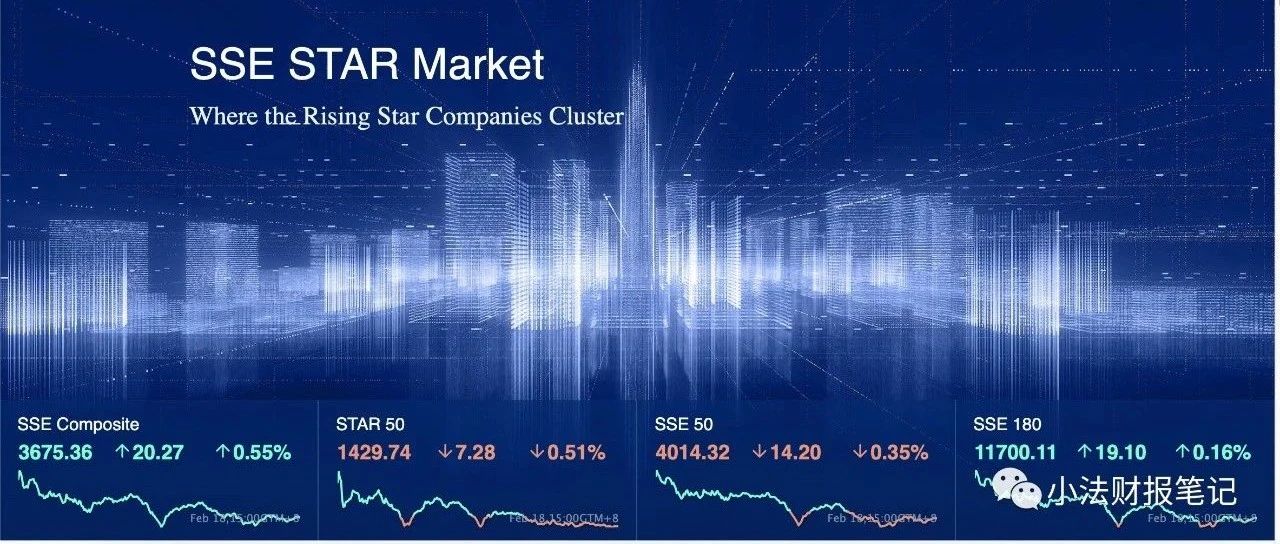|
|
Significant Changes 2020
Brought to Governance of
China’s A-share Stock Market
2020 was a big year for governance of China’s securities market both in legislation and regulatory enforcement. A number of significant changes were brought to securities governance and compliance in line with China’s “go-out” strategy of capital markets propagated by the high-level leaders. Those changes have instigated and would continue instigating further internationalization of China’s securities market and make the market more open up to the world and more interactive with other countries’ securities markets. We will in this article discuss some significant changes brought to China’s A-share stock market in 2020 to shed some lights on the trend of internationalization of China’s securities markets.
A. Changes 2020 in Legislation
1. Amended Securities Law effective March 1, 2020
The amended Securities Law (the “Amended Securities Law”) came into effective as of March 1, 2020. As the highest level of law, the Amended Securities Law aims to promote a more transparent and efficient securities market. More than 50% of the original articles were amended and it is the amendment of the utmost importance in the past 20 years since promulgation of the first edition of the Securities Law. Some key points in this latest amendment are:
1) established registration-based IPO system as opposed to the approval-based IPO system for securities issuance;
2) rationalized the preconditions of IPOs and created some room to loosen the preconditions of refinancing for listed companies in future;
3) lowered the requirements of public bond issuance for listed companies;
4) strongly strengthened the requirement of authentic, accurate and complete “information disclosure”, expanding the scope of information disclosure obligators and those obligators’ liabilities etc.;
5) enhanced protection mechanism for ordinary investors, empowering in many aspects the Medium-small Investor Service Center, which was established to protect ordinary investors’ benefits and is directly managed by the China Securities Regulatory Commission (“CSRC”);
6) hugely increased the cap of administrative penalties for those carrying out violations of securities laws and regulations, for example, in regard to securities fraudulent issuance, the cap of penalty increases from RMB300,000 to RMB10 million inflicted to the faulted management and persons in charge. The increased cap of penalties varies with violations whist covering a broad scope of illegal and non-compliant securities-related acts, including but not limited to securities fraudulent issuance, inaccurate or misleading statement of financial reporting and information disclosure, insider trading, and market manipulation.
2. Limit on foreign investors’ shareholding ratio in securities, fund and futures institutions lifted on April 1, 2020
The limit of 51% shareholding ratio held by foreign investors to their equity investment to securities institutions, securities investment fund management institutions and futures institutions was lifted on April 1, 2020. Also, we can see that the 51% shareholding limit provided in The Special Administrative Measures on Access to Foreign Investment (Edition 2019) (“2019 Negative List”) was removed from the 2020 Negative List effective July 23, 2020.
Following that, J.P. Morgan obtained the first license, issued by the CSRC on June 18, 2020, to operate a wholly foreign-invested futures company. Later on, BlackRock obtained the first license, issued by the CSRC on August 21, 2020, to operate a wholly foreign-invested public fund. Furthermore, Goldman Sachs or J.P. Morgan is expected to obtain the first license to operate a wholly foreign-invested securities company in 2021.
3. Registration-based IPO system applied to ChiNext board on June 12, 2020
Subsequent to the pilot registration-based IPO system being applied to the STAR market (the Shanghai Stock Exchange Science and Technology Innovation Board, China’s Nasdaq-style board) starting from July 2019, the CSRC released a new regulation effective June 12, 2020 to roll out registration-based IPO system to ChiNext Board (consisting of over 900 listed companies with a total market value exceeding RMB11 trillion), a subsidiary board under the Shenzhen Stock Exchange(“SZSE”). It is expected that registration-based IPO system will be rolled out to all other boards on SSE and SZSE in 2021.
Shifting to registration-based IPO system indicates the relevant regulatory authorities’ supervision policy changes, i.e. supervision emphasis changes from pre-IPO stage to post-IPO stage. Accordingly, we can see that legislation and enforcement on illegal and non-compliant securities-related acts were largely tightened accompanying with the loosened IPOs’ requirements. We will discuss it more in the rest of this article.
4. Class-action lawsuit system launched on July 31, 2020
The Supreme People’s Court, China’s highest court, launched a class-action lawsuit system with Chinese characteristic (called “representative litigation”) by way of promulgation of Provisions 0f The Supreme People s Court On Issues Concerning Representative Litigation In Securities Disputes effective July 31, 2020. The supplementary rules are expected to come out in the near future to push ahead the smooth application of the class-action lawsuit system in practice.
5. Amendment XI to the Criminal Law adopted on December 26, 2020
The 13th National People’s Congress Standing Committee, China’s top legislature, adopted Amendment XI to the Criminal Law (the “Amendment XI”) on December 26, 2020. The Amendment XI inflicts substantially increased criminal liabilities, both in imprisonment and monetary penalty, on securities- and futures-related crimes. For example, for stock or bond fraudulent issuance, the monetary penalties inflicted onto the controlling shareholder and the actual controlling person increase from 1-5% to 20-100% of the amount of the illegal fundraising capital.
6. The strictest Delisting Rules effective December 31, 2020
On the last day of 2020, SSE and SZSE released delisting rules which are regarded as the strictest delisting rules ever. The delisting rules add a number of new circumstances to trigger a delisting process. Those new circumstances threatened to delisting will stimulate the existing listed companies to make an effort to ensure authentic financial reporting, accurate and complete filings and information disclosure, healthy and effective internal control and corporate governance, and compliance with the relevant securities laws and regulations to avoid the CSRC’s administrative penalties. The market expects that lots of zombie A-share listed companies will be forced to be delisted in the next years.
7. Amended Chinese accounting standards throughout 2017-2020
Under the Amended Chinese Accounting Standard (“CAS”) 14 Revenue effective January 1, 2020, revenue should be recognized at the time of “transfer of control” as opposed to “transfer of risks and rewards” under the old CAS 14. In combination with the other CAS rules amended throughout 2017-2019, generally over 95% CAS rules are in line with those under International Financial Reporting Standards (“IFRS”). Undoubtedly, the converging with IFRS rules will bring huge conveniences to foreign investors for their financial analyses of Chinese listed companies’ performances.
B. Changes and Trends 2020 in Enforcement
1. First ruled class action litigation concerning bond fraudulent issuance
Wuyang case, China’s first class action litigation concerning bond fraudulent issuance, activated an alarm among securities-related intermediaries such as underwriters, auditors and lawyers. In Wuyang case, the underwriter and the audit firm were awarded, in accordance with the first instance verdict, to bear joint and several liabilities with the faulted issuer for its defaulted debts and accrued interest amounted to RMB740 million. The law firm was awarded to bear 10% of joint and several liabilities, i.e. liabilities with the limit of RMB74 million.
Compared with the broker fees charged by those intermediaries, usually less than RMB1 million for such bond issuance, those liabilities definitely caused them deeply painful for their failures to fulfill due diligence duty as “market gatekeepers” in the bond issuance as ruled by the first instance verdict, although it is not the final judgement. Certainly, this case initiated and would continue heating discussions among securities-related intermediaries on how to appropriately fulfill due diligence duty and where is the borderline.
2. Signals emitted by SSE’s 2020 Report
SSE’S 2020 report indicates that SSE has issued inquiry letters including 2200 questions in relation to 2019 annual reports to 230 listed companies out of the total 1506 companies listed on SSE. As to those SSE’s inquiries:
1) 56% inquiries were concerned with authenticity of the disclosed financial information, in particular: a) doubtable recognition of revenue and expenses; b) manipulation of profit through depreciation and amortization of assets; c) concealed affiliated parties and transactions;
2) 25% inquiries were concerned with industry-related business risks, including liquidity risks and periodic going concern risks;
3). Other inquiries mainly were concerned with financial frauds, corporate governance and post-merger and acquisition performance.
SSE’s report signals the CSRC’s “zero tolerance” on fraudulent financial reporting and also its stricter and closer supervision on the listed companies after their registrations of IPOs.
In 2021, we expect the trends in legislation and regulatory enforcement would continue with a result of a more transparent, effective, predictable and the rule of law China’s A-share stock market more attractive to market players worldwide. |
-

|

 京公网安备 11010802035448号
( 京ICP备19053597号-1,电话18600416813,邮箱liwei03@51shebao.com ) 了解Tax100创始人胡万军
优化与建议
隐私政策
京公网安备 11010802035448号
( 京ICP备19053597号-1,电话18600416813,邮箱liwei03@51shebao.com ) 了解Tax100创始人胡万军
优化与建议
隐私政策
 京公网安备 11010802035448号
( 京ICP备19053597号-1,电话18600416813,邮箱liwei03@51shebao.com ) 了解Tax100创始人胡万军
优化与建议
隐私政策
京公网安备 11010802035448号
( 京ICP备19053597号-1,电话18600416813,邮箱liwei03@51shebao.com ) 了解Tax100创始人胡万军
优化与建议
隐私政策

 【全网最全】31个省市!残保金政策汇编及申
【全网最全】31个省市!残保金政策汇编及申
 全网最全|2022年失业保险稳岗补贴政策汇总
全网最全|2022年失业保险稳岗补贴政策汇总
 2021年个税汇算容易出现哪些错误?税务总局
2021年个税汇算容易出现哪些错误?税务总局
 【全网最全】历史上最高规模退税减税!2022
【全网最全】历史上最高规模退税减税!2022




